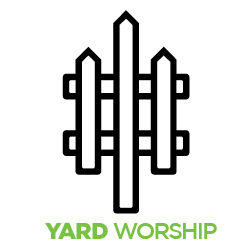CURB APPEAL IN WINTER
DIY Mid-Century Plant Stand – A Step By Step Guide
Believe it or not it’s easier than you think to make your own mid-century plant stand that’s perfect for your porch or sunroom! Plant with succulents to colorful blooms to bright up any corner! Supplies you’ll need to build a mid-century plant stand: Planter Saw Drill Wood dowel Forstner drill bit (coordinating diameter with your wood…
The post DIY Mid-Century Plant Stand – A Step By Step Guide appeared first on Homedit.

Mark the center of your longer diameter piece in the center.
Supplies you’ll need to build a mid-century plant stand:
- Planter
- Saw
- Drill
- Wood dowel
- Forstner drill bit (coordinating diameter with your wood dowel)
- Wood glue
- 1×1″ wood boards
- 1X2″ wood boards
- Pencil
- Sanding block or paper
- Hammer
Drill two centered holes all the way through for your wood pegs equal distance apart (try for a strict measurement like 2 inches to be consistent throughout the piece). Also drill holes into the ends of each of the smaller 1×2″ pieces (both sides) approximately 1 inch deep.
How to build the mid-century plant stand step by step:
Step 1: Measuring and cutting

Step 2: Set the diameter

Step 3: Drilling process

Step 4: Woodcutting

Cut your dowel rod into smaller pieces (approximately 2″ each).
Step 5: Add the glue
Put wood glue in the holes on the 1×2″ longer board.
Step 6: Add the dowel
Believe it or not it’s easier than you think to make your own mid-century plant stand that’s perfect for your porch or sunroom! Plant with succulents to colorful blooms to bright up any corner!
Step 7: The two holes
Use a hammer to get your legs and dowels fully into place and fitting together tightly. Wipe off any excess wood glue with a wet cloth.
The post DIY Mid-Century Plant Stand – A Step By Step Guide appeared first on Homedit.
Step 8: Put all together
Place your planter in the wood base and it should fit nice and snug! Let the whole thing dry overnight. Finish the wood if you’re going to keep it outside (here we just used a light vegetable oil since it was used on a porch but a polyurethane protective finish is a great option too).
Step 8: Cutting the excess wood

Step 9: Add the soil and plants

Step 10: Painting
Insert your dowel pieces (longer ones) through the holes in the longer centerboard. Attach your shorter pieces to your long piece in an X shape with dowels and the wood glue.
Saw off the excess dowel on the outsides of the legs and sand down those areas.

Drill two holes (again equal distance apart) in the center of all 4 of your long legs. Drill all the way through the legs. Place wood glue and dowels in the ends of the X shaped center and attach your legs on the dowels.
You will start this project by measuring you planter. Your dimensions for this project will be completely based on the planter that you use and the dimensions that you size. You will want to measure the height, width and depth of the planter. If you use a round or square (vs. oblong) planter this will make it much easier. Have your local hardware store cut 1×1″ and 1×2″ boards to your specific dimensions. You will need 4 long pieces that will serve as legs (your height plus whatever extra height you want off the ground) cut from your 1×1″ boards and 3 shorter pieces (cut based on your dimensions from the diameter) cut to size. One will be the exact diameter of the planter and the other two will be the the diameter minus the width of the board divided by two.
Lastly, plant your planter with rocks, soil, and colorful florals or fun succulents!

